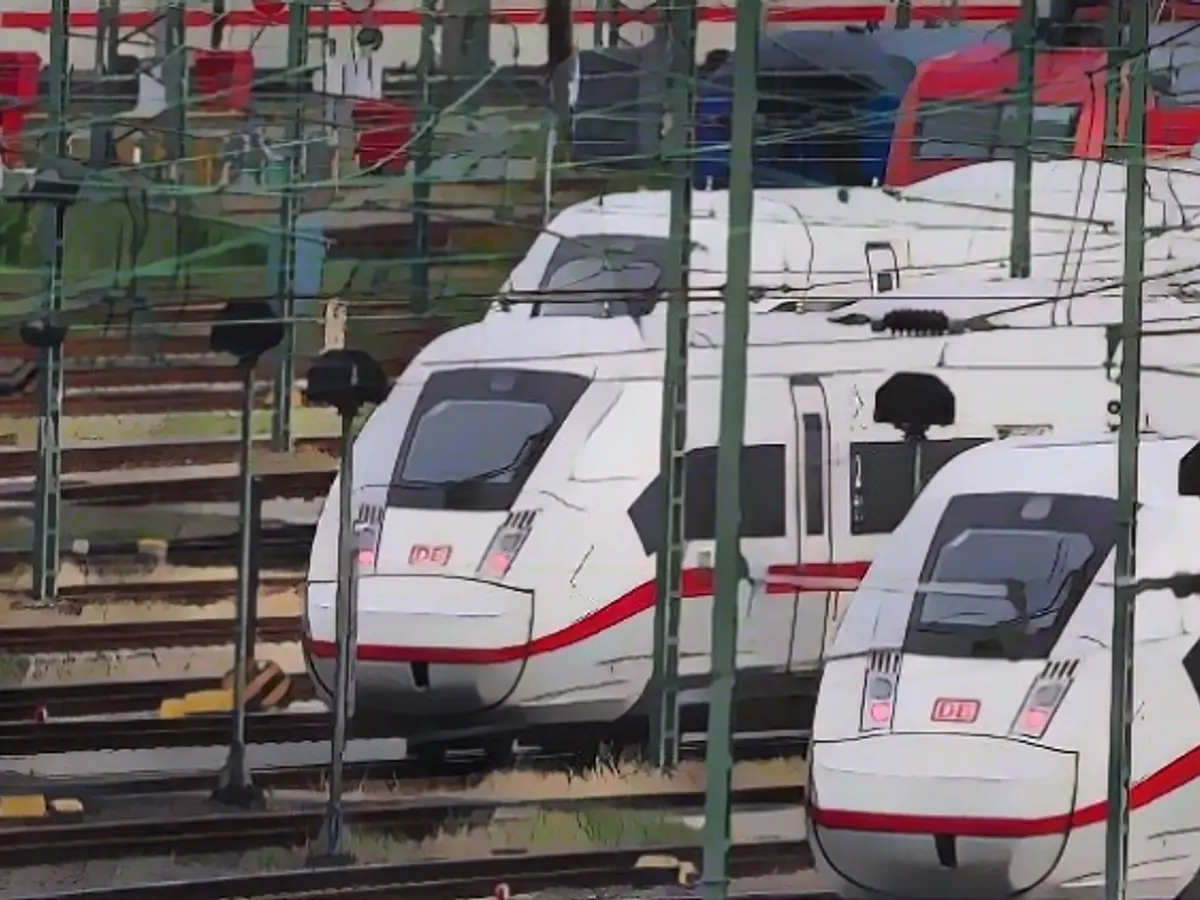IW describes GDL warning strike as "disproportionate" and "unrealistic"
The German Economic Institute (IW) has described the warning strike announced by the train drivers' union GDL for Wednesday and Thursday as "disproportionate" and "unrealistic". The demands of the GDL are not feasible for Deutsche Bahn, explained the Cologne-based institute, which is considered to be close to employers, on Wednesday. The IW accused the GDL of not fighting for the cause, but for its own "raison d'être".
If the reduction in working hours to a four-day week for shift workers with full pay compensation demanded by the union were to be implemented, the IW stated that Deutsche Bahn would have to hire 10,000 new employees. There is already a shortage of 3,700 train drivers - the shortage is greater than in any other railroad profession.
Meanwhile, the IW described Deutsche Bahn's initial offer as "decent". The company had offered an eleven percent wage increase and an inflation bonus of up to 2850 euros for a term of 32 months. However, the company rejected the reduction in working hours with full wage compensation demanded by the GDL as unachievable.
In addition to the reduction in working hours, the GDL is demanding a wage increase of at least 555 euros for a collective bargaining period of one year as well as a 25 percent increase in bonuses for shift work and a tax-free inflation payment of 3000 euros. Following the GDL's announcement to strike from Wednesday evening, the railroad company canceled the wage negotiations planned for Thursday.
The German Economic Institute (IW) not only criticized the GDL's warning strike as "disproportionate" and "unrealistic," but also accused the union of prioritizing its own existence over the actual cause. Due to the GDL's demand for a four-day work week with full pay compensation, Deutsche Bahn would need to hire an additional 10,000 employees, further exacerbating the existing shortage of 3,700 train drivers.
Source: www.ntv.de








